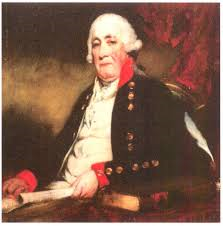Vallancey, George
Charles Vallancey (1721-1812) was a military surveyor in the British Army eventually holding the rank of general. He was sent to Ireland where he eventually settled. He was also an antiquarian who took great interest in the history,  language and mythology of his adopted country. He published a number of books on the subject which have been heavily criticised for both their content and style. He voiced the opinion that the Phoenician and Irish languages were related(a)>and that “the Phoenicians had colonised Ireland in archaic prehistory: When their explorers had searched for Thule, Vallancey affirmed, they had come to Ireland; the word Thule was identical to the Irish word thua, which meant simply ‘north’!”(b)<
language and mythology of his adopted country. He published a number of books on the subject which have been heavily criticised for both their content and style. He voiced the opinion that the Phoenician and Irish languages were related(a)>and that “the Phoenicians had colonised Ireland in archaic prehistory: When their explorers had searched for Thule, Vallancey affirmed, they had come to Ireland; the word Thule was identical to the Irish word thua, which meant simply ‘north’!”(b)<
Although Valancey made little reference to Atlantis, James McCulloh noted [1588] that Vallancey was disposed to support John Whitehurst’s association of the Giant’s Causeway (See: W.C. Beaumont), in Northern Ireland, with ‘lost Atalantis‘.
(a) https://phoenicia.org/Phoenician-Celtic-connections.html
